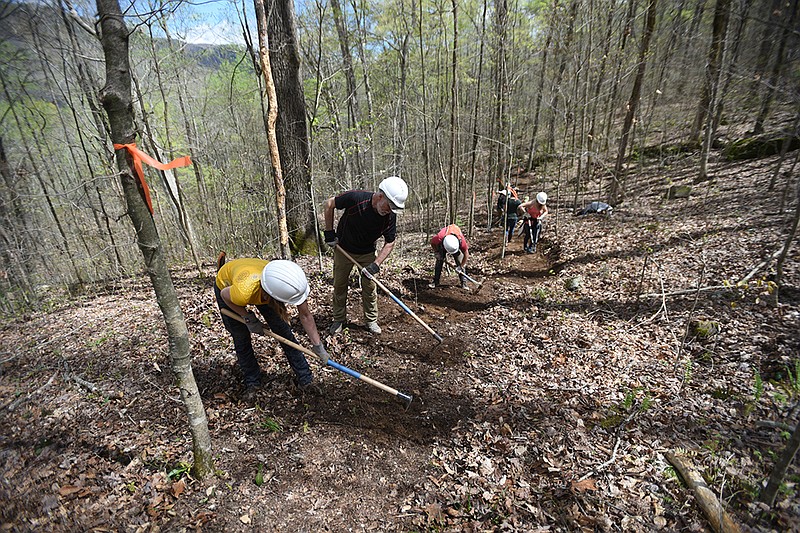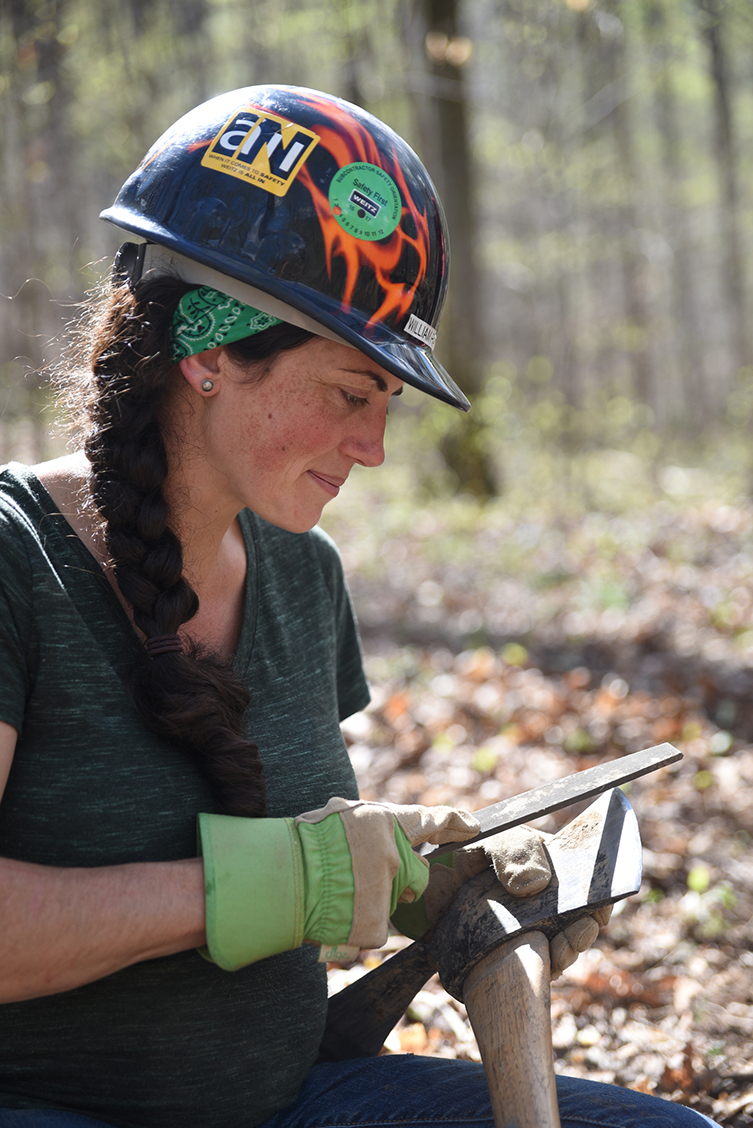You may not see them on the trails, but you've seen evidence of their work.
A fallen tree cleared away after a storm. A water bar repaired to stop a flood.
Each quietly executed project leads to only one logical conclusion: There are ninjas on the trail. Or, maybe, a host of stealthy volunteers and park staff constantly working to keep your favorite trails hikeable.
We caught up with one such ninja, Mariah Prescott, business and community access director for the Tennessee River Gorge Trust, who has been doing trail maintenance on and off since 2004. Since moving from Flagstaff, Arizona, she worked on popular routes such as the Pot Point Nature Trail, and agreed to share the secrets of her ways.
Spot a Hazard?
To report a hazard on a trail in the Gorge or to sign up to volunteer, visit trgt.org.
Mariah Prescott: I like that name, by the way. "Trail ninjas." [laughs]
Get Out: We chose it because maintenance workers are rarely seen on the trails. When are you guys out working on the routes?
MP: There's not a specific time, but people probably don't see a lot of trail work because it's being done during the workweek when they're not hiking.
GO: How do you find out what work needs to be done?
MP: A lot of time we get reports in from hikers. But every now and again, we have a volunteer go out and hike our trails and give us reports on what needs to happen. We also hike our own trails to get our own eyes on the trail periodically, as well; especially after a storm.
GO: So, walk me through what you do.
MP: First of all, you have to hike the whole trail. So that takes time. Then you have to bring the tools that you need out there. So let's say there's a bunch of dead trees. You have to hike in with a chainsaw and cut up all the hazard trees so that no one gets hurt while they're hiking.
GO: Sounds like a job for more than one ninja.
MP: Yeah. You can't do that stuff by yourself. It's not safe. Especially if you're running a chainsaw or any heavy equipment.
GO: What's the hardest task you have to do?
MP: Rock work is probably one of the most time consuming parts of maintaining a trail. Once a rock slips out of place, it's a lot harder to try and put it back in place. Generally you have to redo the whole thing. So if you have a small rock staircase, a lot of times, you have to pull it all back out and get it all back in place if something slips out. Each one depends, but a four- or five-step staircase would take you all day.
GO: Wow. Well, to most people, maintenance is probably not as glamorous as trail building, but why would you say it's just as important?
MP: It's very important because we want to keep access open to the public. We want the public to be able to experience nature right outside of Chattanooga and in Chattanooga, and in order to do that, you have to keep the trails safe and free of hazards.
GO: What are some of those hazards?
MP: Trees are probably the biggest danger, I would say. Any time you walk out into the woods and there's a little bit of a wind, there might be a dead tree above you that's about to fall. With all the droughts we've had recently, they'll sometimes even fall without a wind. So you have to be vigilant about being able to identify these hazards, especially with the trees.
Also, with all the snakes we have in this area, if you don't keep your trails clean and brush cleared away, a lot of those venomous snakes can be hiding on the trail. So we have to weedeat our trails to keep the ground clear at least five times a year, whereas out West, there's less foliage, so you don't have to do any of that.
GO: What can hikers do to make your job easier?
MP: They could let us know when they do see a hazard, or let us know when an area might be slippery so we know when to come and change that. That would be the best thing. And they could come and volunteer on trail days. Volunteers are very invaluable.
GO: What do you love the most about working on the trail?
MP: First of all, you get to be outside all day. And it's beautiful here in Chattanooga - though maybe not when it's 105 degrees. [laughs] But you also feel like you're providing a service for the community. The important thing for me and our organization is to connect the community to the outdoors, and to connect the community to nature. Maintaining the trails to allow access is one way to do that.

